Hello, Cologne! I’m Debsie, your friendly online chess academy. We teach kids and teens to think clearly, stay calm, and make smart moves on and off the board. Our coaches are patient, FIDE-certified, and great with children. Classes are live, interactive, and easy to join from home. We follow a simple step-by-step path, so learning feels smooth and progress is steady. No long trips. No guesswork.
If you want a safe start, try a free class. You will see how we teach, how your child learns, and how the plan fits your family. It takes one minute to book and could change how your child thinks for life.
Online Chess Training
Online chess training is simple. You sit at home. You open your laptop or tablet. You click one link. Your coach is there, live. The board is clear on your screen. You can talk, ask, and try moves in real time. There is no long trip across the city. There is no search for parking near the hall.
There is no rush after school. Class starts on time. Class ends on time. Your child learns more with less stress. For busy families in Cologne, this is a quiet gift.
Good online training is not a long video you watch alone. It is a live, warm class where a coach guides your child step by step. The coach shows a position, asks a short question, waits for the answer, and gently leads the next idea. Your child tries a move.
The coach tests it. Your child sees why it works or why it fails. The lesson moves at a calm pace. There is space to think. There is space to explain. This is how the mind grows.
The real magic is the plan. Each class fits into a simple path. We start with safety. We teach how to look at the board with care. We check for danger before we dream of attack. Then we build small opening habits that are easy to repeat. We add tactics so your child can spot forks, pins, and mates.
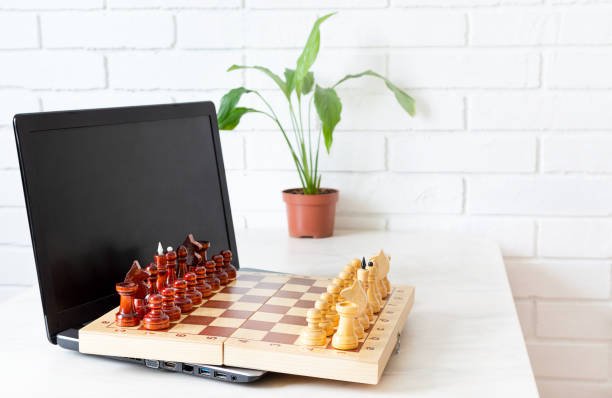
Landscape of Chess Training in Cologne and Why Online Chess Training is the Right Choice
Cologne has a warm chess spirit. Schools run clubs. Families play at home. Some weekends bring friendly events. You can find local groups that meet in community rooms, cafés, or sports halls. This is lovely and social. Children meet other players. They feel part of a local scene.
But daily life in Cologne is busy. Traffic takes time. Rain and wind slow you down. After school, energy is low. A short trip across the bridge can turn into a long evening. By the time you reach the club, your child is hungry or tired.
The coach may have a big group that day. The lesson might be short, and most of the time is casual play. You head back home late, and the next morning is hard.
Another challenge is structure. Many in-person programs do not follow a clear learning path. One week you hear about pins. The next week is a blitz night. Then there is a break for holidays. The flow stops. Children forget. Without a steady plan and a review system, progress is slow. Parents want to help but do not know what to do at home.
Online training fixes these problems. It brings the best coach to your home, on your schedule, without travel. It gives your child a simple path. It gives you clear notes after class. It makes practice easy. It keeps learning steady even during school trips, family visits, or weather days. It also gives you choice.
You are not limited to coaches near your street. You can pick a coach who matches your child’s pace and style, in English or in simple German. Fit matters. When the fit is right, children learn faster and feel safe to try, fail, and try again.
How Debsie is the Best Choice When It Comes to Chess Training in Cologne
Debsie is built for children and teens who need care, clarity, and a real plan. We are an online academy with FIDE-certified coaches who love to teach. Our classes are live and interactive. Our voice is warm and simple. Our method is steady and kind. We help your child grow both as a player and as a person.
What sets us apart is our step-by-step path. We call it the “Pawn to King Path.” It is easy to follow and easy to trust. We begin with a clean way to look at any position. We teach a short safety scan: checks, captures, threats.
We guide simple opening choices that hold up under pressure. We drill core tactics with tiny, fresh puzzles so patterns stick. We practice endgames so a small lead becomes a win. Each week adds one brick. Each brick supports the next. The wall grows strong.
Our classes are small. Every child speaks. Every child plays. Shy students get kind space. Bold students get gentle balance. The coach does not lecture for long. The coach asks, listens, and builds the idea with the group.
When a child plays a move, we praise the good idea inside it, then improve the move if needed. We correct the root, not only the result. This is how thinking gets clean.
We teach life skills on purpose. We show how to handle nerves. We practice a calm breathing step before tricky positions. We teach how to make a short plan and stick to it. We teach how to lose with grace and learn one thing from each game.
These habits help in school tests and in team sports. Parents often tell us their child is more patient at home after a month of class. This makes us proud.
We keep parents close. After each class, you get a short note you can read in two minutes. You see what we did, where your child shined, and what to try at home. We also share small progress markers. Maybe your child now castles early without reminders.
Maybe they spot a fork in less than ten seconds. Maybe they can win a king-and-pawn ending without help. These simple signs show real growth.
We run friendly tournaments every two weeks. They are safe and fair. Children from Cologne can play kids from many places without leaving home. After each event, we take three or four games and show one clear lesson from each.
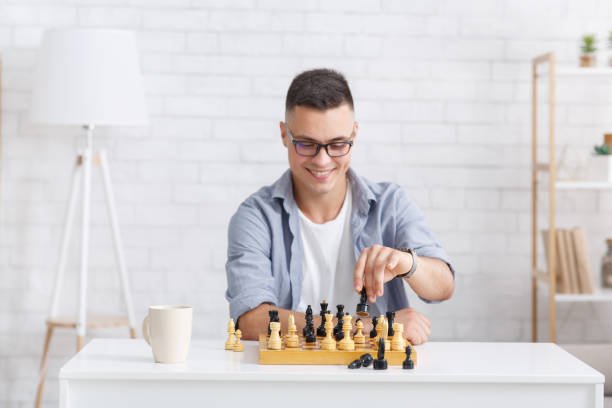
Offline Chess Training
When people in Cologne picture chess lessons, many think of a club evening in a school hall or community room. Wooden boards sit in neat rows. A coach stands at the front, sometimes with a demo board.
Children chat, settle in, and the room feels warm and friendly. This setting has charm. It builds local bonds. You see familiar faces. You share snacks after games. Tradition matters, and Cologne has plenty of it.
Still, your week is full. School ends, homework starts, the weather shifts over the Rhine, and traffic thickens near the bridges. A short drive can turn long. Trains are crowded. By the time you arrive, your child is hungry or tired. The coach may have many students that night.
A small lesson happens, then most of the time becomes casual games. Some children learn well this way, but many need more structure, more gentle guidance, and a steady plan they can trust week after week.
Offline training also depends on the room you get that day. Sometimes there is space and quiet. Sometimes the hall is busy or the lights are harsh. If a school event uses the room, class can move or be canceled.
Holidays cut the rhythm. Parents miss updates. Children forget old topics because review is light. None of this is bad on purpose. It is just the nature of in-person group nights in a busy city.
If you live far from the center—say in Chorweiler, Porz, or Widdersdorf—the trip can be even harder. Winter rain or a late school play can mean you miss class. And if you miss class, there is no simple way to make it up.
The lesson is gone. Momentum dips. The game that should bring calm begins to add stress. This is the quiet reason many children stop.
Drawbacks of Offline Chess Training
The first drawback is time lost to travel. When a sixty-minute lesson becomes a three-hour trip-door-to-door, energy leaks away. For a child who already worked hard at school, that hour on a train or in a car is the difference between an eager mind and a sleepy one. Learning needs fresh attention. Travel eats it.
The second drawback is uneven attention. In a large group, a shy child may not speak. A bold child may speak too much. The coach tries to balance, but minutes fly. Mistakes go uncorrected.
A child repeats the same quick blunder for weeks, not from lack of effort, but from lack of precise, gentle feedback at the right moment.
The third drawback is weak structure. Without a clear curriculum, lessons can feel random. One week shows a pin. The next week is blitz. Then there is a team match and no teaching.
Children forget. Parents are left in the dark. When you ask, “What did you learn?” the answer is, “We played.” Play is good, but play without plan slows growth. Children need a path and a simple review loop to turn ideas into habits.
The fourth drawback is low flexibility. If your child is sick or the class is canceled, there is no easy make-up. Life in Cologne has concerts, football practice, and family events.
Without flexible sessions, you miss weeks. Missed weeks lower confidence. Confidence drives practice. Practice builds skill. The chain breaks at the start.
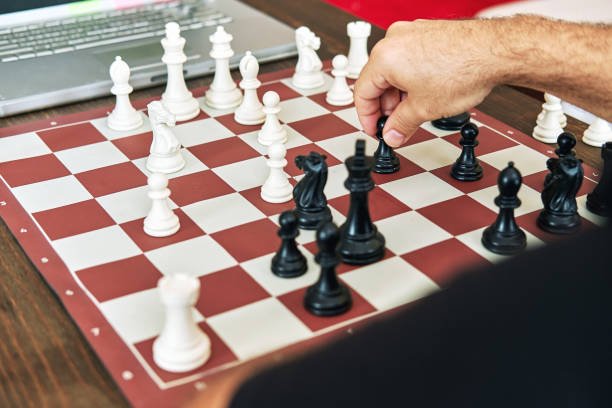
Best Chess Academies in Cologne
Cologne is a proud chess city. You will find local clubs with long history, friendly rooms, and loyal members. You will also find private tutors and regional teams. Each option has value.
But if you want steady progress with a clear plan, kind feedback, make-up options, and a coach that fits your child, you will see why Debsie sits first.
1. Debsie
Debsie is number one for Cologne families because we blend heart, structure, and service in a way that feels human and works week after week. We teach live online. We use simple words. We move at a calm pace.
We guide with kindness. We set a clear path you can trust. Our coaches are FIDE-certified and trained to teach children, not just to play well. We make the board feel like a friend, not a test.
Our learning path—what we call the Pawn to King Path—does not rush. It builds safety first. Your child learns a short scan before each move: checks, captures, threats.
This one habit prevents fast blunders and grows confidence. We add small, sturdy opening shapes that your child can use under pressure without memorizing long lines.
We build tactics with tiny, fresh puzzles so pattern recognition becomes quick and calm. We practice endgames that win cleanly, so a small lead becomes a full point. Each class adds one brick. We never pile on. We never overwhelm. We help the idea stick.
A Debsie class feels personal. Your child logs in a few minutes early and is greeted by name. The coach asks for one tiny win from the week to build pride. A focused puzzle warms the mind. The coach asks a short question and waits for voices, so even shy students try.
The coach visits each board and gives one helpful note—not five—so the brain can actually use it next time. We end with a two-minute recap and a tiny task for the week. Children leave smiling. Parents get a short message they can read in under two minutes.
We serve Cologne’s busy rhythm. If a school concert runs late, we can move your session. If your child is unwell, we offer a make-up. If holidays come, we keep the thread with a light practice pack.
2. Schachgemeinschaft Porz (SG Porz)
SG Porz is a famous club in Cologne with a long record in German team events. It has a lively scene and proud traditions, especially in league play. Families who want a classic club night may enjoy the atmosphere.
But like many traditional clubs, teaching can depend on the volunteer schedule, group size, and the room for that evening. This makes structure and make-ups harder, and parents may not get regular progress notes.
3. Kölner Schachklub Dr. Lasker 1861 e. V.
KSK Dr. Lasker 1861 is one of Cologne’s historic clubs. It has deep roots and a loyal community, with activities on site and even an online team room for friendly events. If you value tradition and local ties, this can be appealing.
Still, the offer is shaped by fixed meeting times and the usual offline limits: travel, cancellations, and variable group sizes. Debsie gives you flexible scheduling, make-up options, and a unified curriculum that moves at your child’s pace.
4. Klub Kölner Schachfreunde
This club sits near Barbarossaplatz and gathers a large membership with many teams in league play. The location is central and the spirit is energetic. For social players, this is a pleasant hub. For structured, child-focused lessons with clear homework and weekly reports, online sessions may fit better, especially when school calendars shift.
Debsie’s small groups, gentle feedback, and bi-weekly online tournaments help children grow steadily without the strain of travel.
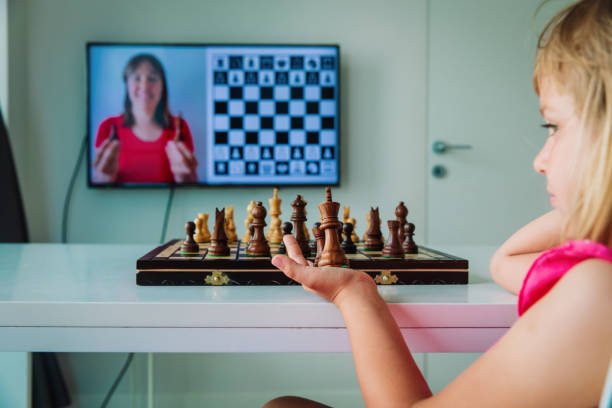
5. Schachfreunde Köln-Mülheim e. V. (plus regional options)
Schachfreunde Köln-Mülheim welcomes players on the right bank of the Rhine and runs local activities and free events from time to time. It is friendly and rooted in the neighborhood. Families beyond Mülheim, or those needing flexible times and make-ups, often find online coaching smoother.
And if you look beyond the city, North Rhine-Westphalia has strong regional clubs, such as the historic Düsseldorfer Schachverein 1854. These are great for league play, but they still carry the offline limits that online lessons avoid.
Why Online Chess Training is The Future
Online chess training is the future because it respects your time, your child’s energy, and your family rhythm. It lets you learn in a calm way, inside your own home, without the rush of traffic or the worry of weather.
The lesson begins on the minute. The coach is there, live. The board is bright and clear. Your child can think, speak, and try ideas without the noise of a crowded room. This quiet focus is a huge gift for growing minds.
The biggest shift is choice. You are no longer limited to a coach who happens to live near your street. You can find the right voice, the right pace, and the right vibe for your child. When the fit is right, your child relaxes and learns faster.
If your child needs slow steps, we do slow steps. If your child loves energy, we bring energy. If your child needs simple English, simple German, or both, we match that. The lesson becomes a safe space where ideas land and stick.
Another shift is structure. Strong online programs use a clear path. Topics connect like links in a chain. A small idea leads to the next small idea. Class ends with a tiny practice task you can do in ten minutes.
The next class checks the task and adds one more step. This steady rhythm builds real skill.
How Debsie Leads the Online Chess Training Landscape
Debsie leads because we keep teaching simple, caring, and organized. We use warm voices. We set a clear plan. We keep groups small so every child speaks and plays in class. We send short notes to parents after each session.
We run friendly tournaments every two weeks. We match coaches to learners with care. We offer make-up options so busy weeks do not break the flow. We design each step so it feels light and doable for a child who already has a full day.
Our path is called the Pawn to King Path. It starts with safety and ends with calm in sharp positions. In the first stage, we train the habit that changes everything: a short scan before every move.
Your child looks for checks, captures, and threats. This takes a few seconds and prevents most fast mistakes. In the next stage, we build easy opening shapes that stand up under stress.
No long lines to memorize. Just shapes that guard the king, share space, and get pieces ready to work. Then we add tactics. We use tiny fresh puzzles to teach patterns like forks, pins, skewers, and double attacks.
We keep the mood cheerful and the wins frequent. Finally, we teach endgames so a small lead turns into a clean point. These phases stack like bricks. The wall grows strong and steady.
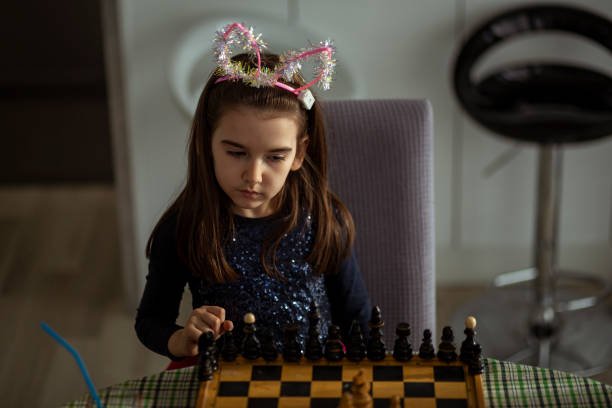
Conclusion
Cologne loves learning, and chess belongs here. You want lessons that are calm, clear, and fair on your family time. You want real growth, not guesswork. You want a coach who speaks simply, listens well, and builds steady habits. This is what online training does best, and this is what Debsie delivers every single week.
Offline club nights can feel warm, but they are often uneven. Travel drains energy. Groups are large. Topics jump around. Missed classes stay missed. Progress slows even when effort is high. Online lessons remove all that noise.
Your child learns from home, on time, with a coach who fits their pace and mood. The plan is simple and strong. Each week adds one small step. Each step sticks.
Debsie stands first because we teach the child, not just the game. We keep language easy. We keep classes small. We follow a clear path from safety to openings to tactics to endgames. We send short notes after class so you always know what to cheer at home.
Comparisons With Other Chess Schools:



